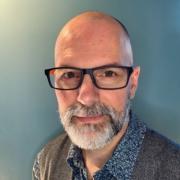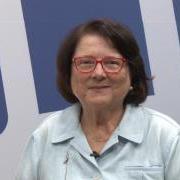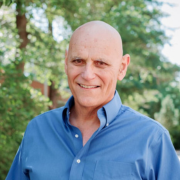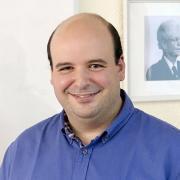Plenary Speakers
Lori E. Crosby, PsyD, is a Professor in the Division of Behavioral Medicine and Clinical Psychology at Cincinnati Children’s Hospital Medical Center and the Department of Pediatrics at the University of Cincinnati, College of Medicine. Additionally, she serves as the Director of the Cincinnati Center for Clinical and Translational Science (CTSA) Community Engagement Core, Co-Director of Faculty Diversity, Equity, and Inclusion, and leads a groundbreaking research program in pediatric sickle cell disease. Her role also extends to being the Co-Director of INNOVATIONS in Community Research and Program Evaluation. An elected Fellow of the American Psychological Association (APA), Dr. Crosby recently obtained a Certificate in Diversity, Equity, and Inclusion from Cornell University. Her vast expertise encompasses self-management, treatment adherence, the transition to adult care, as well as the recruitment and retention of diverse and marginalized populations in research. Proficient in mixed methods quality improvement and community-engaged research, she strives to integrate cutting-edge technologies and design thinking methods to engage marginalized populations, thereby contributing to the reduction of health disparities.
Dr. Crosby will be giving the following presentation: Reboot, Reframe and Re-envision: Advancing Health Equity within Behavioral Science

David Gillanders is a Chartered Clinical Psychologist, member of the British Psychological Society, Health & Care Professions Council, Association of Clinical Psychologists (UK), British Association of Behavioural & Cognitive Psychotherapy and a founder member of the Association for Contextual Behavioural Science. David is the Head of Clinical & Health Psychology at the University of Edinburgh. He leads a programme of research into the application of contextual behavioural science to living well with ill health, as well as research into training, supervision and basic measurement in behavioural science. Dr. Gillanders has published more than 65 peer reviewed articles and several book chapters, and is co-author of the self-help book, “Better Living with IBS”. He is a founding member of ACBS, an ACBS Fellow and a peer reviewed ACT trainer with ACBS. The peer review is the international association’s mark of high quality, high fidelity ACT training.
Dr. Gillanders will be giving the following presentation: Towards a science of competency

Andrew Gloster, Ph.D., is a Professor of Psychology, University of Basel, Switzerland where he is head of the Division of Clinical Psychology and Intervention Science. His research examines the multi-level factors involved in pathology and the mechanisms of action involved in interventions designed to alleviate pathology, increase well-being, and maximize transfer of these principles to patients in their everyday lives. His research has examined various forms of behavioral psychotherapy, its efficacy, and treatment non-response. His research utilizes numerous methodologies towards these aims including event sampling methodology (ESM), randomized controlled trials (RCTs), digital interventions, experiments, and epidemiology. His research extends multiple levels of investigations ranging from genetic polymorphisms to behavioral assessment, GPS, and population level analysis. He has published more than 80 peer-reviewed publications and chapters, as well as edited and published several books. His research has been funded by the Swiss National Science Foundation, German Ministry for Education and Research, and the Blue Cross Blue Shield of Michigan Foundation. Dr. Gloster regularly gives invited addresses at international conferences, has received multiple teaching awards, is a Fellow of the Association of Contextual Behavioral Science, past President of the ACBS Foundation. He is currently the president of the Association for Contextual Behavior Science.
 Deisy das Graças de Souza received her Ph.D. in experimental psychology from the Universidade de São Paulo. She was a postdoctoral fellow at the University of Maryland, Baltimore County, where she worked with A. Charles Catania, and the Eunice Kennedy Shriver Center, where she worked with William J. McIlvane. Throughout her career, she has been a member of the Department of Psychology at the Universidade Federal de São Carlos, where she attained the rank of professor in 2005. Dr. de Souza’s contributions are impressive in quality, quantity, and range. Her early career was characterized by important publications on basic laboratory analyses of signaled and unsignaled avoidance and of choice behavior. When serious allergies forced her out of the animal lab, Dr. de Souza turned her attention to stimulus control, an area in which she has made seminal experimental, applied, and conceptual analyses of phenomena involving exclusion and stimulus equivalence. Findings from her human laboratory studies were taken quickly into the field to facilitate reading and writing skills among young Brazilian children who were falling behind in school primarily due to reading deficits. The collective impact of this work is evidenced not only by the many publications it has generated in major outlets in Brazil and internationally, but also by its history of funding from Brazil’s most highly competitive federal research agency (FAPESP, CNPq). Dr. de Souza is widely respected as an inspirational teacher who has made essential contributions to the growth and development of her department, particularly as a mentor of graduate and postdoctoral students. Among her many leadership positions are service as president of the Associação Brasileira de Psicologia, international representative of the ABAI Council, and editor of Revista Brasileira de Análise do Comportamento.
Deisy das Graças de Souza received her Ph.D. in experimental psychology from the Universidade de São Paulo. She was a postdoctoral fellow at the University of Maryland, Baltimore County, where she worked with A. Charles Catania, and the Eunice Kennedy Shriver Center, where she worked with William J. McIlvane. Throughout her career, she has been a member of the Department of Psychology at the Universidade Federal de São Carlos, where she attained the rank of professor in 2005. Dr. de Souza’s contributions are impressive in quality, quantity, and range. Her early career was characterized by important publications on basic laboratory analyses of signaled and unsignaled avoidance and of choice behavior. When serious allergies forced her out of the animal lab, Dr. de Souza turned her attention to stimulus control, an area in which she has made seminal experimental, applied, and conceptual analyses of phenomena involving exclusion and stimulus equivalence. Findings from her human laboratory studies were taken quickly into the field to facilitate reading and writing skills among young Brazilian children who were falling behind in school primarily due to reading deficits. The collective impact of this work is evidenced not only by the many publications it has generated in major outlets in Brazil and internationally, but also by its history of funding from Brazil’s most highly competitive federal research agency (FAPESP, CNPq). Dr. de Souza is widely respected as an inspirational teacher who has made essential contributions to the growth and development of her department, particularly as a mentor of graduate and postdoctoral students. Among her many leadership positions are service as president of the Associação Brasileira de Psicologia, international representative of the ABAI Council, and editor of Revista Brasileira de Análise do Comportamento.
 Michael Muthukrishna is Associate Professor of Economic Psychology and Affiliate of the Data Science Institute and STICERD Developmental Economics Group at the London School of Economics, Technical Director of The Database of Religious History, and founder of the LSE Culturalytik project. Muthukrishna’s research focuses on answering three broad questions: (1) Why are humans so different to other animals? (2) What are the psychological and evolutionary processes that underlie culture and how culture is transmitted, maintained, and modified? (3) How can the answers to these questions be used to tackle some of the challenges we face as a species? Michael uses a two-pronged methodological approach to answer these questions, combining mathematical and computational modeling, and experimental and data science methods from psychology and economics. In 2021 Muthukrishna was awarded the APS Rising Star award by the Association of Psychological Science (APS), in 2022 the SAGE Early Career Trajectory Award by the Society for Personality and Social Psychology (SPSP), and in 2023, both the Rising Star Award and the Early Career Award for Distinguished Scientific Contribution by the Human Behavior and Evolution Society (HBES).
Michael Muthukrishna is Associate Professor of Economic Psychology and Affiliate of the Data Science Institute and STICERD Developmental Economics Group at the London School of Economics, Technical Director of The Database of Religious History, and founder of the LSE Culturalytik project. Muthukrishna’s research focuses on answering three broad questions: (1) Why are humans so different to other animals? (2) What are the psychological and evolutionary processes that underlie culture and how culture is transmitted, maintained, and modified? (3) How can the answers to these questions be used to tackle some of the challenges we face as a species? Michael uses a two-pronged methodological approach to answer these questions, combining mathematical and computational modeling, and experimental and data science methods from psychology and economics. In 2021 Muthukrishna was awarded the APS Rising Star award by the Association of Psychological Science (APS), in 2022 the SAGE Early Career Trajectory Award by the Society for Personality and Social Psychology (SPSP), and in 2023, both the Rising Star Award and the Early Career Award for Distinguished Scientific Contribution by the Human Behavior and Evolution Society (HBES).
Michael has written several prominent articles on a variety of topics, including innovation, corruption, and navigating diversity and cultural differences. He has been invited to present his research in world-leading centers of academic excellence, including Harvard, MIT, Stanford and Oxford, to audiences including judges, policy-makers, members of the military, government officials, and key industry figures. Dr Muthukrishna tries to make the science of human and cultural evolution more accessible through animations, videos, documentaries, and other popular media. His research and interviews have appeared in a variety of international and national news outlets including CNN, BBC, Wall Street Journal, The Economist, Scientific American, Fortune, PBS, Vice, Newsweek, New York Magazine, Nature News, and Science News, Times, Telegraph, Mirror, Sun, and Guardian. Michael’s research is informed by his educational background in engineering and psychology, with graduate training in evolutionary biology, economics, and statistics, and his personal background living in Sri Lanka, Botswana, Papua New Guinea, Australia, Canada, United States, and United Kingdom. He is the author of A Theory of Everyone: Who we are, how we got here, and where we’re going.
Invited Speakers
 Gonzalo Brito Pons, is a clinical psychologist who has worked with diverse populations in Chile, Peru, and Spain, integrating Western psychological approaches with traditional medicine and contemplative practices. As a certified yoga teacher and mindfulness-based stress reduction (MBSR) instructor, he has included these practices in his clinical work and workshops for health care professionals and educators over the last decade. Gonzalo is a certified instructor of the Compassion Cultivation Training Program and serves as a supervisor for Spanish-speaking teachers in training at at the Center for Compassion and Altruism Research and Education at Stanford University. He obtained his PhD doing experimental research on the individual and relational effects of compassion cultivation training and mindfulness-based stress reduction. He has co-authored two books and several academic and dissemination articles on psychology and contemplative practices.
Gonzalo Brito Pons, is a clinical psychologist who has worked with diverse populations in Chile, Peru, and Spain, integrating Western psychological approaches with traditional medicine and contemplative practices. As a certified yoga teacher and mindfulness-based stress reduction (MBSR) instructor, he has included these practices in his clinical work and workshops for health care professionals and educators over the last decade. Gonzalo is a certified instructor of the Compassion Cultivation Training Program and serves as a supervisor for Spanish-speaking teachers in training at at the Center for Compassion and Altruism Research and Education at Stanford University. He obtained his PhD doing experimental research on the individual and relational effects of compassion cultivation training and mindfulness-based stress reduction. He has co-authored two books and several academic and dissemination articles on psychology and contemplative practices.
Dr. Brito Pons will be giving the following presentation: Entrenamiento en Compasión en Terapia y en Grupos Psicoeducativos: Aprendizajes centrales de 12 años de experiencia
 Steven C. Hayes is a Nevada Foundation Professor of Psychology Emeritus at the University of Nevada and President of the Institute for Better Health, a 45 year old charitable organization that promotes quality in mental and behavioral health services. An author of 48 books and over 700 scientific articles, he is especially known for his work on Acceptance and Commitment Therapy, Relational Frame Theory, Process-Based Therapy, and Contextual Behavioral Science. Dr. Hayes has received several national awards, such as the Lifetime Achievement Award from the Association for Behavioral and Cognitive Therapy, and recipient of the Cattell Award from the Association for Psychological Science -- their lifetime achievement award for applied psychology. His popular book Get Out of Your Mind and Into Your Life for a time was the best-selling self-help book in the United States, and his new book A Liberated Mind has been recently released to wide acclaim. His TEDx talks and blogs have been viewed or read by over three million people, and he is ranked among the most cited psychologists in the world.
Steven C. Hayes is a Nevada Foundation Professor of Psychology Emeritus at the University of Nevada and President of the Institute for Better Health, a 45 year old charitable organization that promotes quality in mental and behavioral health services. An author of 48 books and over 700 scientific articles, he is especially known for his work on Acceptance and Commitment Therapy, Relational Frame Theory, Process-Based Therapy, and Contextual Behavioral Science. Dr. Hayes has received several national awards, such as the Lifetime Achievement Award from the Association for Behavioral and Cognitive Therapy, and recipient of the Cattell Award from the Association for Psychological Science -- their lifetime achievement award for applied psychology. His popular book Get Out of Your Mind and Into Your Life for a time was the best-selling self-help book in the United States, and his new book A Liberated Mind has been recently released to wide acclaim. His TEDx talks and blogs have been viewed or read by over three million people, and he is ranked among the most cited psychologists in the world.
Dr. Hayes will be giving the following presentation: Every Voice Matters: How a Modern Process-Based Approach is Helping us Expand Our Work Beyond Psychotherapy
 Amanda Muñoz-Martínez received her Ph.D. in Clinical Psychology from the University of Nevada, Reno. She is a Certified Functional Analytic Psychotherapy Trainer (FAP trainer) and a member of the FAP Certification, Policy, and Ethics Board (FAP CEP). Amanda is currently an Assistant Professor at the Universidad de Los Andes (Colombia). Amanda’s main research interest is optimizing and evaluating principle-based therapies for improving clients’ and stakeholders’ well-being, particularly, in Latin America. She is the director of ContigoLab in which she conducts research on (a) assessing contextual mechanisms of change, and (b) optimizing contextually-based interventions. Amanda has published several articles in peer-reviewed journals (Q1 to Q4, SJR index). She has also written book chapters with recognized book editorials such as Springer. In 2021, she received the ACBS Research Development Grant Award to study contextual and behavioral mechanisms associated with adherence to cardiac rehabilitation. She also received the Early Career Research Paper Award at the 2023 ACBS World Conference. As a FAP trainer, she has facilitated several trainings for English- and Spanish-Speakers to enhance interpersonal skills and create meaningful relationships.
Amanda Muñoz-Martínez received her Ph.D. in Clinical Psychology from the University of Nevada, Reno. She is a Certified Functional Analytic Psychotherapy Trainer (FAP trainer) and a member of the FAP Certification, Policy, and Ethics Board (FAP CEP). Amanda is currently an Assistant Professor at the Universidad de Los Andes (Colombia). Amanda’s main research interest is optimizing and evaluating principle-based therapies for improving clients’ and stakeholders’ well-being, particularly, in Latin America. She is the director of ContigoLab in which she conducts research on (a) assessing contextual mechanisms of change, and (b) optimizing contextually-based interventions. Amanda has published several articles in peer-reviewed journals (Q1 to Q4, SJR index). She has also written book chapters with recognized book editorials such as Springer. In 2021, she received the ACBS Research Development Grant Award to study contextual and behavioral mechanisms associated with adherence to cardiac rehabilitation. She also received the Early Career Research Paper Award at the 2023 ACBS World Conference. As a FAP trainer, she has facilitated several trainings for English- and Spanish-Speakers to enhance interpersonal skills and create meaningful relationships.
Dr. Muñoz-Martínez will be giving the following presentation: Long life to Social Connection: Using FAP principles to build up a meaningful life
 Manuela O’Connell, Lic. Clinical psychologist specializes in Acceptance and Commitment Therapy, Mindfulness, Functional Analytical Psychotherapy and Compassion. Manuela is a Peer Reviewed ACT trainer and Fellow for ACBS. ACT trainer and supervisor along Latin America in the Spanish speaking population. She has private practice and regular training programs in Buenos Aires, Argentina. Board President of ACL Foundation (Live with Awareness, Courage and Love). She is one of the earliest ACL groups leader since 2016 and has run this groups for the last 8 years. Certified Mindfulness Meditation Teacher (MMTCP- training program through UC Berkeley Greater Good Science Center with Tara Brach and Jack Kornfield Accredited by IMTA.org). Manuela has an extensive meditation practice and delivers and attends several mindfulness retreats during the year and incorporates mindfulness into her therapy with clients including interpersonal mindfulness. She also offers Mindfulness programs for general public and has offer a Mindfulness and Psychotherapy course oriented in CBS for 8 years and done several conferences on the topic of Mindfulness and CBS. Manuela has been involved also in body work and somatic training for the last 30 years and is a certified Eutony teacher. In this area she has been integrating the felt sense and somatic experiences with Mindfulness and ACT in the form of Embodied Metaphor into her clinical work and has presented around this topic extensively. Author of a general public book “Una vida valiosa” from Random Penguin House. This book emerged after several years of delivering ACT for the public interventions. Co author in the ACT for anger workbook with Dr. Robyn Walser. Collaboration in The hear of ACT book from Dr. Robyn Walser and wrote with her several publications in the area of the therapeutic relationship and couples work.
Manuela O’Connell, Lic. Clinical psychologist specializes in Acceptance and Commitment Therapy, Mindfulness, Functional Analytical Psychotherapy and Compassion. Manuela is a Peer Reviewed ACT trainer and Fellow for ACBS. ACT trainer and supervisor along Latin America in the Spanish speaking population. She has private practice and regular training programs in Buenos Aires, Argentina. Board President of ACL Foundation (Live with Awareness, Courage and Love). She is one of the earliest ACL groups leader since 2016 and has run this groups for the last 8 years. Certified Mindfulness Meditation Teacher (MMTCP- training program through UC Berkeley Greater Good Science Center with Tara Brach and Jack Kornfield Accredited by IMTA.org). Manuela has an extensive meditation practice and delivers and attends several mindfulness retreats during the year and incorporates mindfulness into her therapy with clients including interpersonal mindfulness. She also offers Mindfulness programs for general public and has offer a Mindfulness and Psychotherapy course oriented in CBS for 8 years and done several conferences on the topic of Mindfulness and CBS. Manuela has been involved also in body work and somatic training for the last 30 years and is a certified Eutony teacher. In this area she has been integrating the felt sense and somatic experiences with Mindfulness and ACT in the form of Embodied Metaphor into her clinical work and has presented around this topic extensively. Author of a general public book “Una vida valiosa” from Random Penguin House. This book emerged after several years of delivering ACT for the public interventions. Co author in the ACT for anger workbook with Dr. Robyn Walser. Collaboration in The hear of ACT book from Dr. Robyn Walser and wrote with her several publications in the area of the therapeutic relationship and couples work.
Dr. O'Connell will be giving the following presentation: Embodying ACT: Integrating Acceptance and Commitment Therapy with Body-Based Interventions
 Francisco J. Ruiz received his doctoral degree in Psychology at Universidad de Almería (Spain) under the supervision of Dr. Carmen Luciano. His primary research is focused on interfacing Acceptance and Commitment Therapy and Relational Frame Theory. Over the past few years, he and his colleagues have developed a model of ACT that focuses on disrupting dysfunctional patterns of repetitive negative thinking and have conducted around 25 clinical studies evaluating its efficacy and processes of change. He has published over 100 scientific articles and is currently director of the Clinical Psychology Laboratory of the Fundación Universitaria Konrad Lorenz (Clinik Lab) in Colombia. In 2020, he was inducted as a fellow of the Association for Contextual Behavioral Science.
Francisco J. Ruiz received his doctoral degree in Psychology at Universidad de Almería (Spain) under the supervision of Dr. Carmen Luciano. His primary research is focused on interfacing Acceptance and Commitment Therapy and Relational Frame Theory. Over the past few years, he and his colleagues have developed a model of ACT that focuses on disrupting dysfunctional patterns of repetitive negative thinking and have conducted around 25 clinical studies evaluating its efficacy and processes of change. He has published over 100 scientific articles and is currently director of the Clinical Psychology Laboratory of the Fundación Universitaria Konrad Lorenz (Clinik Lab) in Colombia. In 2020, he was inducted as a fellow of the Association for Contextual Behavioral Science.
Dr. Ruiz will be giving the following presentation: Eficacia y procesos de cambio de intervenciones breves de ACT centradas en reducir pensamiento negativo repetitivo
*This webpage is under construction.

